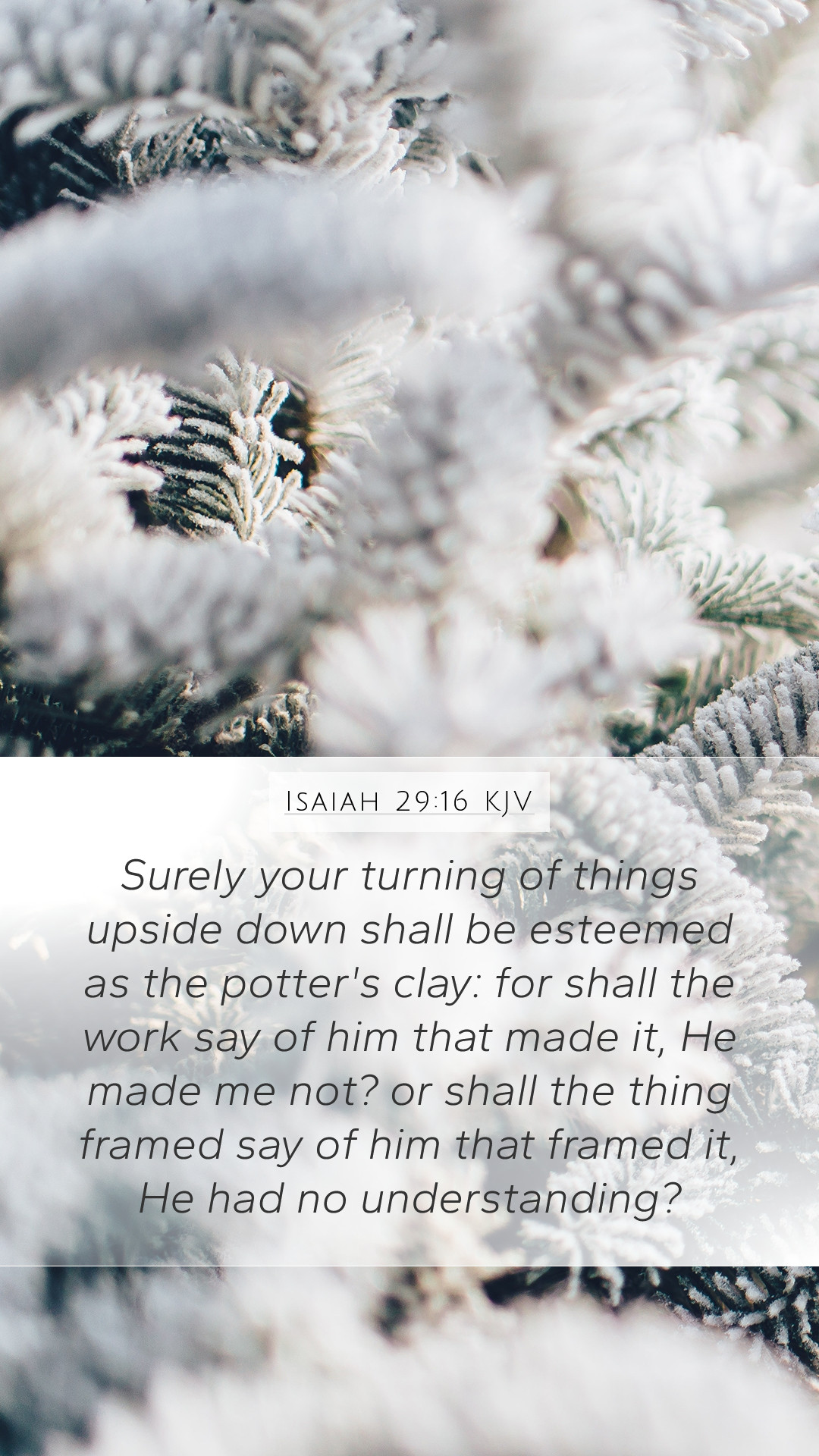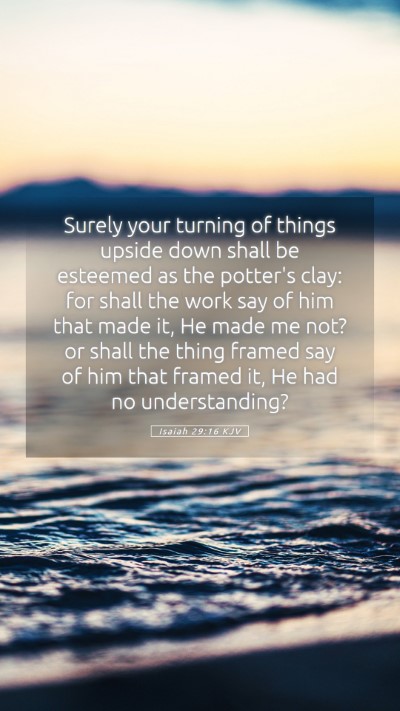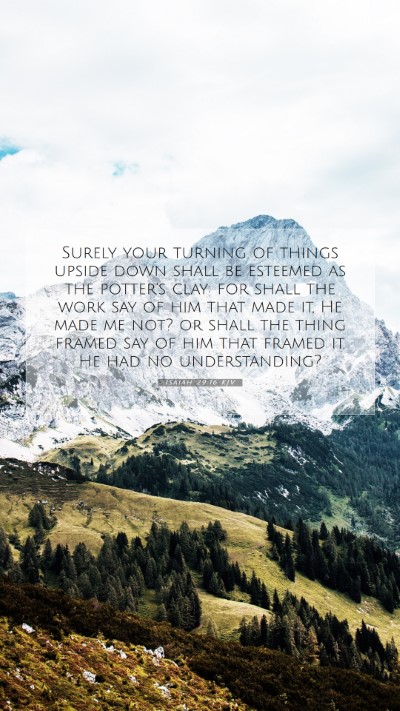Meaning and Analysis of Isaiah 29:16
Isaiah 29:16 states, "Surely your turning of things upside down shall be esteemed as the potter's clay: for shall the work say of him that made it, He made me not? or shall the thing framed say of him that framed it, He had no understanding?" This verse communicates profound truths about human understanding and the divine order established by God.
Overview of Isaiah 29
This chapter of Isaiah delivers a warning and a prophecy to Jerusalem, expressing God's discontent with the people's rebellion and hypocrisy. It serves as a reminder of the relationship between the Creator and His creation.
Commentary Insights
Insights from notable public domain commentaries shed light on this verse:
- Matthew Henry's Commentary:
- Matthew Henry reflects on the absurdity of the created denying the Creator's authority over them. He highlights that mankind often attempts to overturn divine truths, yet such actions are ultimately futile.
- Albert Barnes’ Notes:
- Albert Barnes emphasizes the metaphor of the potter and clay, indicating that just as clay cannot argue with the potter, so too should humanity recognize its place in relation to God. He illustrates that any attempt to questioning divine wisdom is misplaced.
- Adam Clarke's Commentary:
- Adam Clarke provides an interpretation that underscores the foolishness of mankind in doubting God's foresight and intent. He explains the potter's role and how it symbolizes God's control over creation while warning against prideful thoughts that challenge divine authority.
Detailed Analysis of Key Themes
The core themes present in Isaiah 29:16 can be analyzed as follows:
1. The Creator vs. Creation
In this verse, there is a clear distinction drawn between God, the Creator, and humanity, His creation. The reference to "the potter's clay" serves as a metaphor that depicts the absolute authority of God over the lives of people. It implies that just as a potter shapes clay, God shapes the destinies and experiences of individuals according to His will.
2. Human Rebellion
The society in view is characterized by a reversal of divine order—where the creation is rebelling against the Creator. They question God's intentions and understanding. This rebellion is a core aspect of modern human experience, showcasing the tendency to elevate human reasoning above divine wisdom.
3. The Absurdity of Disregarding God
The verse also highlights the absurdity inherent in the idea of creation asserting independence from its Creator. In doing so, humans not only undermine their own existence but also engage in a type of cognitive dissonance where they contradict their very nature as created beings.
Application to Daily Life
Understanding such verses is vital for everyday life as they encourage humility and acknowledging God’s role in our lives. Here are practical applications:
- Embrace the acknowledgment that we are part of a greater plan, designed with purpose by a wise Creator.
- Practice humility in our thoughts and actions, recognizing that we do not hold ultimate understanding or control.
- Engage in spiritual reflection that reminds us of our relationship with God and the proper reverence we owe Him.
Cross References
This verse is interconnected with various passages that amplify its message:
- Job 10:8-9 - Reflects on God's handiwork in creation and the relationship between God and man.
- Romans 9:20 - Highlights the error of questioning God's choices and plans.
- Isaiah 45:9 - Emphasizes the futility of contending with the Almighty.
Conclusion
Isaiah 29:16 encapsulates significant insights into divine authority, human folly, and the creator-creation relationship. Such an understanding enriches our Bible study and provides clarity on issues of identity and purpose in God's created order.


